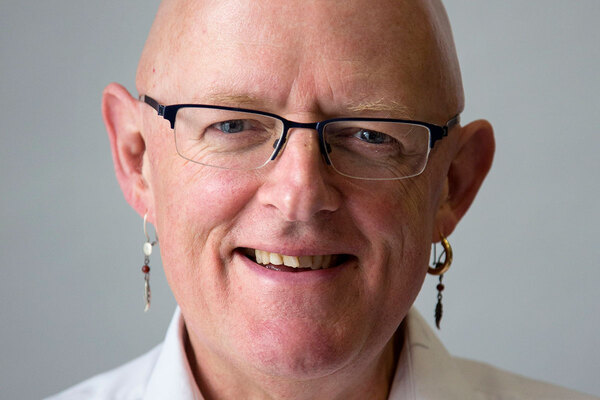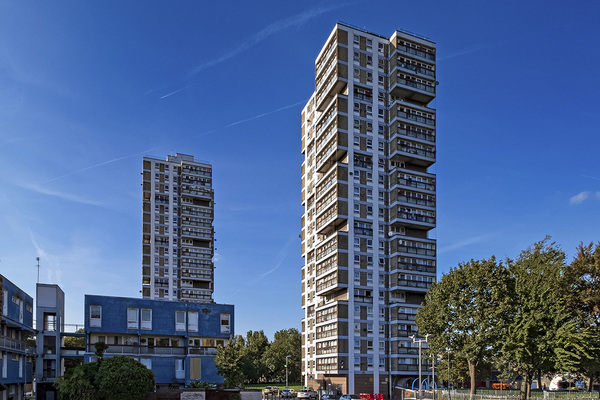You are viewing 1 of your 1 free articles
Lessons from Grenfell: we must tackle social housing stigma if we are going to change the culture forever
Addressing stigma is a vital part of ensuring a tragedy like Grenfell never happens again, write Lynne Brosnan, Yaw Boateng and Nic Bliss of Stop Social Housing Stigma
The launch of the final Grenfell Inquiry report was harrowing. Reliving the horrors of that night seven years ago, all our hearts went out to families and friends of the 72 people, including 18 children, who needlessly lost their lives.
Can the positive culture change that is so desperately needed in social housing, which has now been recognised by the prime minister as being needed, come out of this appalling tragedy?
Stop Social Housing Stigma was formed following the Grenfell fire tragedy and the subsequent ministerial roadshows, where tenants identified that tackling social housing stigma was their most important priority, higher even that getting a good-quality and safe repairs service.
It’s an organisation led by a committee of social housing tenants. It has a growing membership consisting of tenants, supporters, landlords and other organisations.
The current UK government has now clearly recognised the importance of tackling social housing stigma. In the debate in the house, the prime minister stated that regulations alone are not sufficient to tackle social housing stigma, and that there is a need for a significant cultural change.
He was responding to Florence Eshalomi MP (now the chair of the Housing, Communities and Local Government Committee) who raised the issue of social housing stigma, possibly for the first time in a debate in the house. The deputy prime minister went on to stress the importance of tackling social housing stigma in interviews the day after the debate.
“That little has been done by government or the regulator to tackle social housing stigma to date is not surprising. It is so deep rooted in the culture of UK social housing and indeed across society”
Promises were made to tackle social housing stigma in the then government’s post-Grenfell white paper, but they were not delivered on. The new consumer regulations are welcome. Despite stigma being of fundamental importance to tenants, governmental and regulatory activity to tackle social housing stigma remains a blank sheet of paper.
That little has been done by government or the regulator to tackle social housing stigma to date is not surprising. It is so deep rooted in the culture of UK social housing, and indeed across society, that tackling it is considered so difficult (with some landlords still intransigent towards even considering the issue) that it has been parked.
Social housing stigma is complex and intangible. It means different things to different tenants. It manifests itself in many different ways, making it difficult to regulate or measure.
Nonetheless, social housing stigma goes to the heart of the anger and hurt that so many social housing tenants feel. Stigma is not an ‘add-on’ minor problem where tackling it would be just a nice thing to do while other things are more important. It’s the root cause of those other things. It’s the conscious or unconscious perception that ‘it’s just tenants, we don’t need to do what should be done’. It’s fundamental to the lives of social housing tenants.
Stop Social Housing Stigma is starting to unite the sector to tackle social housing stigma. Growing numbers of tenants, landlords and others are signing up for free membership of the campaign.
“Social housing stigma should not have existed back in 2017 when the Grenfell fire took place, but it did. The government back then had a responsibility to tackle social housing stigma, but it didn’t”
We are working with Durham University, Sheffield Hallam University (the leading academics working on social housing stigma), the Chartered Institute of Housing, Tpas and YD Associates to produce the recently launched Tackling Stigma Journey Planner – aimed at helping tenants and landlords work together to address the problem. It’s a flexible framework that recognises that there could be many ways to tackle stigma. To our knowledge, our Journey Planner is the first time that anyone has attempted to develop a comprehensive framework to identify and tackle stigma.
As we write this comment piece, we are launching a set of policy asks to the new government aimed at working in partnership with them to develop a strategy to tackle social housing stigma.
Social housing stigma should not have existed back in 2017 when the Grenfell fire took place, but it did. The government back then had a responsibility to tackle social housing stigma, but it didn’t. Stigma continues unabated.
The new government inherits that responsibility. We call on the new government to work in partnership with Stop Social Housing Stigma to develop a comprehensive strategy to enable tenants, landlords and others tackle social housing stigma and change forever the culture of social housing in the UK.
Lynne Brosnan, chair; Yaw Boateng, vice-chair; and Nic Bliss, campaign director of Stop Social Housing Stigma
Sign up for our daily newsletter
Already have an account? Click here to manage your newsletters













